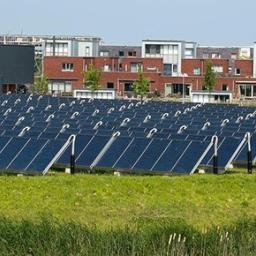Social impacts of mining critical raw materials
Raw materials critical for energy, defence and digital technologies are largely extracted in low- and middle income countries, where mining is often linked to adverse social impacts. This study examines the nature and underlying factors of these impacts and identifies entry points for improving mineral governance in the European Union and the Netherlands.
Widespread local impacts across six social dimensions
Based on case studies covering eight critical raw materials (CRMs) in ten producing countries, the report shows how their mining affects communities across six social domains: economic effects, employment and education, population dynamics and gender, territorial conflicts, environment and health, and human rights. Examples include the displacement of farmers in Guinea for expansion of bauxite mines, unsafe working conditions and child labour in Congolese cobalt mines, and water conflicts in Chilean copper mining regions.
Structural factors behind recurring patterns of impact
While impacts vary by metal and context, common impacts point to structural causes. These include weak enforcement of social safeguards, limited access to robust grievance mechanisms, unequal distribution of costs and benefits, shrinking civic space and power imbalances in global supply chains. Political and market pressures to secure raw materials quickly and cheaply, often override local rights, protections and long term sustainability.
Mineral governance: progress, but limited in reach and effectiveness
Several EU instruments, from multilateral cooperation to corporate regulation, address sustainability risks in supply chains. The Critical Raw Materials Act promotes strategic and equitable partnerships and encourages high standards, but is not binding. Due diligence laws aim to enhance corporate accountability, but face delays, uncertainty and limited scope. Enforced regulations such as the Conflict Minerals Regulation also remain narrow and face challenges due to untransparent supply chains. Together, these efforts mark progress, but fall short of being enforceable or grounded in local mining realities, and do not address deeper economic- and power imbalances. The Netherlands can support stronger mineral governance by contributing expertise at EU level, co-developing equal mineral partnerships, promoting corporate accountability via instruments like the International Responsible Business Conduct (IMVO) covenants, and reducing demand through circular economy strategies focused on reuse, recycling and smarter material use.
Authors
Specifications
- Publication title
- Social impacts of mining critical raw materials
- Publication subtitle
- Challenges and entry points for governance
- Publication date
- 27 June 2025
- Publication type
- Report
- Page count
- 53
- Publication language
- English
- Product number
- 5740
